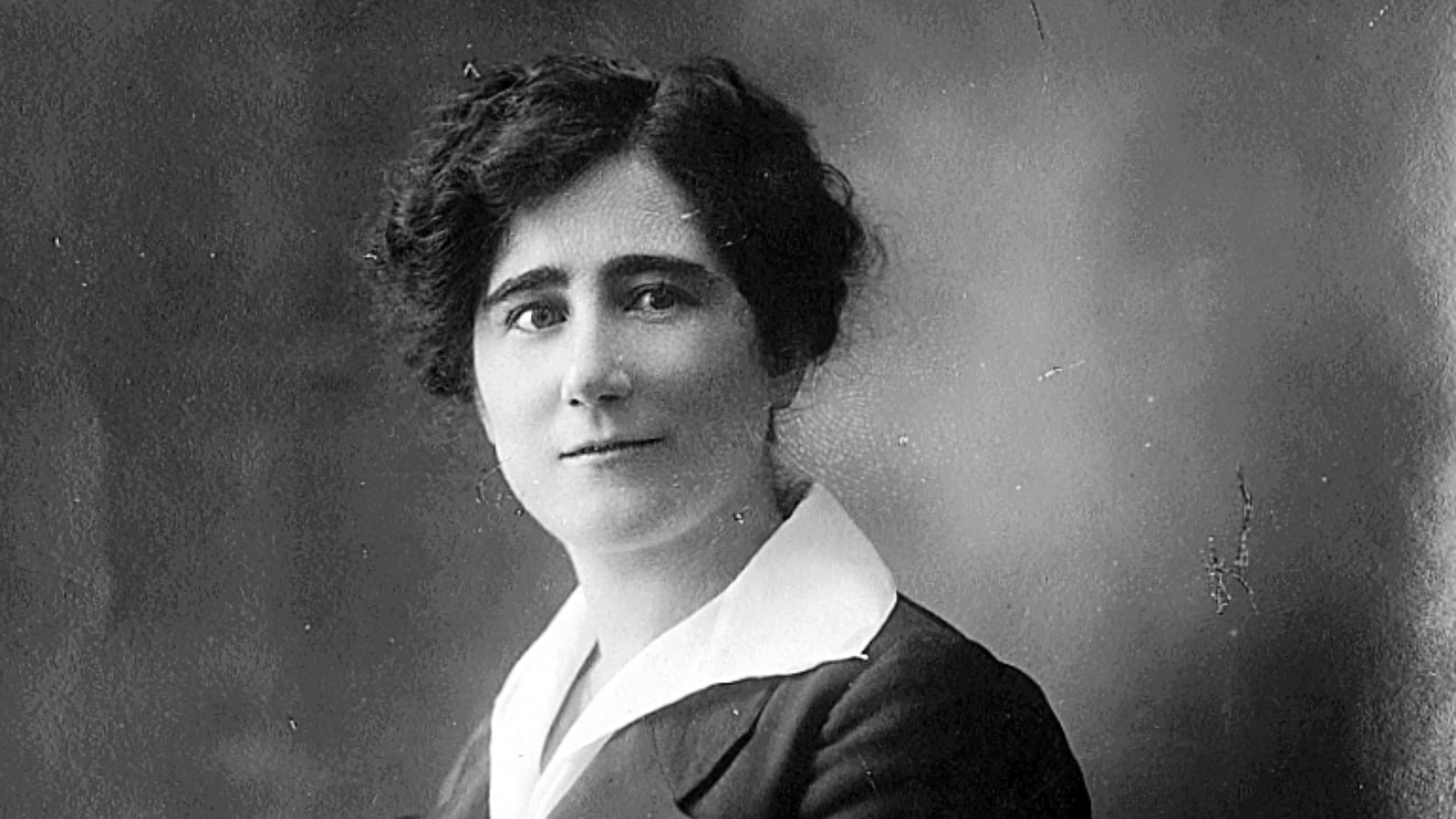Clara Campoamor: politician, lawyer, writer, and most importantly the mother of the Spanish feminist movement. Born on February 12, 1888, in Madrid, Spain, Clara Campoamor grew to become a critical figure in the advocacy of women’s suffrage in early 20th century Spain.
Clara was born into a working-class family; her father, Manuel Martínez Campoamor, worked for a newspaper and secured the family’s income, and her mother, Pilar Rodríguez Martínez, worked as a seamstress. Clara’s family was left to face difficult economic circumstances when her father passed away during her childhood. She was forced to quit school and started working at age thirteen to help ensure a steady income. Clara worked alongside her mother as a seamstress and then for the Spanish postal service before obtaining a job as a typewriter teacher for adults. Additionally, she worked as a secretary for the political newspaper La Tribuna, which established her interest in politics. In 1923, after numerous evening classes, Campoamor passed the entrance exam for the University of Madrid and pursued a degree in law, an incredibly significant accomplishment considering the lack of women allowed admission to Spanish universities.

During this period, Campoamor observed how discriminated against women were and increasingly became involved in politics. She integrated into the Spanish Socialist Party and worked tirelessly to improve conditions for women. Throughout the 1920s to the 1930s, Spain underwent notable political upheavals, transitioning from a monarchy to a republic. In 1931 the
Second Republic was established, and Campoamor secured victory for the Constituent Assembly. In this position, she worked to ensure that women’s right to vote as well as the first divorce laws were included in the new constitution. Her attempts are evident in two of her very famous cases of divorce at the time: the writer Concha Espina, her husband Ramón de la Serna and Cueto, and Josefina Blanco, Valle-Inclán´s wife.
Campoamor was the first woman to intervene before the Supreme Court to develop jurisprudence on issues related to the rights of women’s legal circumstances. She faced opposition from another prominent female deputy, Victoria Kent, who urged to postpone dealing with female suffrage, but Campoamor refused to wait. Campoamor faced objections and criticism from both male and female politicians who were reluctant to grant women the right to vote.
On October 1, 1931, Campoamors efforts bore fruit when the Spanish Parliament approved the Law of Female Suffrage, granting women the right to vote and stand for election. This achievement marked a milestone in the struggle for women’s rights and established Clara Campoamor as a leading figure in the women’s suffrage movement. However, as a result of the controversy she faced, Clara failed to win reelection in 1933. Instead, she was administered the position of director of social services which she soon resigned from due to her servitude under a rightist minister.
Following the Spanish Civil War and the establishment of Francisco Franco’s dictatorship, Campoamor went into exile, living in Switzerland and later Argentina. Failure of the Second Republic and her attempt to go back home led Clara to abandon politics. Instead, she pursued a career in translating French novels and wrote several biographies.

Clara Campoamor’s legacy lives on as a symbol of courage, determination, and perseverance in the fight for women’s rights and social justice in Spain. Her contributions to advancing women’s suffrage and challenging societal norms continue to inspire generations of activists and advocates of equality. Campoamor continued to support feminist causes until she was struck with cancer, and passed on April 30, 1972.
This article is part of The Amicus’s collection featuring Wonderful Women, as a component of our coverage for Women’s History Month.

